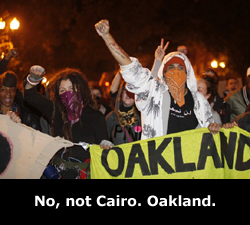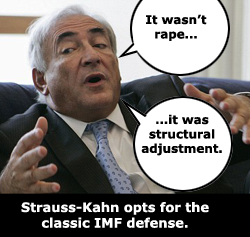It’s worth remembering that, before the 1973 coup, Chile had a long stretch of stable electoral democracy. A military takeover was beyond the imagination of many, and yet it happened. Of course, it happened with full support from the United States under Nixon, but the administration found plenty of willing collaborators in country.
Granted, we’re not faced with a similar threat of powerful foreign intervention. Indeed, the current generation of Americans – and more than a few back – has never faced an all-powerful foreign foe like Chile had in the U.S. We don’t exactly walk around on tip-toe, and practically every nation of the world bears marks left by us at some point. But we ourselves don’t know what it’s like to get skull fucked by an empire.
Models exist – there’s one you’ll choose
You may have heard that Trump recently endorsed Viktor Orban, the Hungarian Prime Minister, for re-election. He’s a right-wing electoral strong man, a bit like Putin but with less opponent poisoning, and a particular favorite of the American right. Then there are the garden variety dictators that our networks never mention – Sisi in Egypt, MBS in Saudi, etc. Those countries hold demonstration elections as an unconvincing means of conferring legitimacy on the autocrat.
As hard as it may be for most people in America to accept, we really are on the brink of losing even the weak, highly attenuated say we have over our government. The Republican party would very much like to see us move more towards a Hungarian model. Say what you like about it, it’s a great way to stay in power permanently, and since that’s what they want above all things, they’re likely to try to bring it about. And if that doesn’t work, there’s always Egypt.
Old boys club, once again
The problem we have is what might be described as the curse of false expectations. Things have always been a certain way. Republicans and Democrats alternatively win an election, lose House and Senate seats in the mid terms, then usually (though not always) rebound on the re-elect year. The normal political cycle is burned into our brains and into the brains of our television pundits. We normalize everything, almost autonomically.
The trouble is, what we’re going through now is not normal. This is not the same thing that happens every two years. As I’ve said before, every time they come back they’re worse, only this time it’s worse than merely worse.
The extremely aged leaders of the Democratic party seem incapable of treating this situation as uniquely dangerous. Biden holds international conferences on Democracy. Garland encourages everyone to be nice to one another and to do what we can to preserve Democracy. Like with the climate crisis and COVID, they seem hyper focused on maintaining the appearance of moderation, at the expense of taking the kind of bold action that’s needed.
And if they’re wrong, well …
Let’s face it, a gradual coup is still a coup. The Republicans are putting the pieces in place to seriously game national elections. Democrats are acting like deer in the headlights. The right is out-organizing the left, and it’s clear that if they win the fall elections, they will finish what they started last year.
The water in this pot is getting hotter, folks. It’s time we leapt the hell out.
luv u,
jp


 parties typically do an end-run around this by simply avoiding the word when it’s inconvenient. We’ve done this with Egypt and with Honduras. When it’s someone we don’t like, it’s a coup, plain and simple. In Kiev, the elected leader of the country was ousted without due process, in the midst of a negotiation over rebalancing of political authority and early elections. It’s not outlandish to call that a coup, regardless of how kleptocratic the old regime may have been.
parties typically do an end-run around this by simply avoiding the word when it’s inconvenient. We’ve done this with Egypt and with Honduras. When it’s someone we don’t like, it’s a coup, plain and simple. In Kiev, the elected leader of the country was ousted without due process, in the midst of a negotiation over rebalancing of political authority and early elections. It’s not outlandish to call that a coup, regardless of how kleptocratic the old regime may have been. Sure, he’s Simon the Likeable. I think of it as the liberal equivalent of conservatives seeing W. Bush as someone they would like to have a beer with. Obama has an appealing persona to people like me, mostly because he’s the first president in my lifetime that shares our experience. Of course, those considerations are an empty category, politically speaking. It doesn’t matter at all whether or not I “like” this man I don’t know. What matters is how he handles driving the enormous killing machine that is the American Presidency.
Sure, he’s Simon the Likeable. I think of it as the liberal equivalent of conservatives seeing W. Bush as someone they would like to have a beer with. Obama has an appealing persona to people like me, mostly because he’s the first president in my lifetime that shares our experience. Of course, those considerations are an empty category, politically speaking. It doesn’t matter at all whether or not I “like” this man I don’t know. What matters is how he handles driving the enormous killing machine that is the American Presidency.
 I think it’s worth remembering that in Egypt, in Tunisia, and likely elsewhere, it was economics that really lit the fire under people. Torture in police custody, exclusion from meaningful political participation, persecution of minorities … abuses of every kind and character were endured by Egyptians – not without resistance, mind you, but without broad outrage. It wasn’t until Mubarak instituted substantial neoliberal economic “reforms”, opening up the Egyptian economy to greater international corporate penetration, that people had had enough. Now not only did you lack a voice in government and enjoy no constitutional rights when detained; you also could not make even the meager living you were making a year or two before. In a nation of extreme economic inequality, this was more broadly felt even then the hard end of the police baton. Everyone was affected.
I think it’s worth remembering that in Egypt, in Tunisia, and likely elsewhere, it was economics that really lit the fire under people. Torture in police custody, exclusion from meaningful political participation, persecution of minorities … abuses of every kind and character were endured by Egyptians – not without resistance, mind you, but without broad outrage. It wasn’t until Mubarak instituted substantial neoliberal economic “reforms”, opening up the Egyptian economy to greater international corporate penetration, that people had had enough. Now not only did you lack a voice in government and enjoy no constitutional rights when detained; you also could not make even the meager living you were making a year or two before. In a nation of extreme economic inequality, this was more broadly felt even then the hard end of the police baton. Everyone was affected. This was the magic of the marketplace passage that’s been previewed over the past few days. Obama promised to get the IMF and World Bank working to “modernize and stabilize the economies of Tunisia and Egypt.” What he didn’t say was that the mass protests in Egypt he referenced earlier were fueled, in part, by neoliberal reforms of the type he’s describing. All I can say is that the revolutionaries in Egypt and Tunisia had better be on their guard, because plugging their economies into the Washington consensus only means striving to be another Honduras.
This was the magic of the marketplace passage that’s been previewed over the past few days. Obama promised to get the IMF and World Bank working to “modernize and stabilize the economies of Tunisia and Egypt.” What he didn’t say was that the mass protests in Egypt he referenced earlier were fueled, in part, by neoliberal reforms of the type he’s describing. All I can say is that the revolutionaries in Egypt and Tunisia had better be on their guard, because plugging their economies into the Washington consensus only means striving to be another Honduras. Fundamental economic disenfranchisement is a large part of what lit a fire under the people of Tunisia and Egypt. Remember that Egypt has, in the past few years, undergone a neoliberal economic restructuring that has exacerbated inequality beyond the miserable point at which it was before. I am not suggesting that Americans are facing this level of privation or repression. But the same process that concentrates wealth at the top in places like Egypt is at work right here at home. It’s not hard to see. Each recession takes a larger bite out of the working class and poor. This most recent one has been the worst in that respect, putting people out of work for months, years, and in some cases the rest of their lives, at least in terms of a solid, remunerative job that can support a family. Meanwhile, the wealthiest are top of the mast, as always, their income swelling to obscene levels, and the very investment bankers that crashed our economy two years ago are raking in the bonuses like never before.
Fundamental economic disenfranchisement is a large part of what lit a fire under the people of Tunisia and Egypt. Remember that Egypt has, in the past few years, undergone a neoliberal economic restructuring that has exacerbated inequality beyond the miserable point at which it was before. I am not suggesting that Americans are facing this level of privation or repression. But the same process that concentrates wealth at the top in places like Egypt is at work right here at home. It’s not hard to see. Each recession takes a larger bite out of the working class and poor. This most recent one has been the worst in that respect, putting people out of work for months, years, and in some cases the rest of their lives, at least in terms of a solid, remunerative job that can support a family. Meanwhile, the wealthiest are top of the mast, as always, their income swelling to obscene levels, and the very investment bankers that crashed our economy two years ago are raking in the bonuses like never before. Granted, they were not all his ideas. He was, like many presidents, something of an empty vessel into which various policy mavens and ideologues were able to pour their nasty ideas. Reagan’s son Ron has written of how his father showed the beginning signs of Alzheimer’s while still in office. I have known two people who had occasion to observe him for fairly long periods of time during his term, both of whom told of a man so cloudy minded he needed to be briefed on the basics every fifteen minutes by an extremely protective Secret Service. In that respect, his administration was run by the people around him, just as George W. Bush’s foreign policy was shaped by Rumsfeld, Cheney, Wolfowitz, and others. (If we get a president Palin, that job will be taken up by the likes of Randy Scheunemann. War with Russia, here we come!)
Granted, they were not all his ideas. He was, like many presidents, something of an empty vessel into which various policy mavens and ideologues were able to pour their nasty ideas. Reagan’s son Ron has written of how his father showed the beginning signs of Alzheimer’s while still in office. I have known two people who had occasion to observe him for fairly long periods of time during his term, both of whom told of a man so cloudy minded he needed to be briefed on the basics every fifteen minutes by an extremely protective Secret Service. In that respect, his administration was run by the people around him, just as George W. Bush’s foreign policy was shaped by Rumsfeld, Cheney, Wolfowitz, and others. (If we get a president Palin, that job will be taken up by the likes of Randy Scheunemann. War with Russia, here we come!) Of course, the United States – despite our late-to-the-party expressions of sympathy for the Egyptian people – is squarely on the wrong side of this divide, as is practically every government in the region, including Saudi Arabia, Jordan, Yemen, and Israel. As a key component of U.S. foreign policy in the middle east, we have been sluicing billions of dollars into the Egyptian regime since the Camp David Accords were signed more than thirty years ago, 29+ of which have been presided over by Mubarak. Much of this has been military aid, the principal purpose of which is to ensure continued non-interference and tacit complicity in Israel’s policy of occupation and assimilation of the West Bank and its denial of national rights for the Palestinians. This aid has given Mubarak the space to run his country with no hint of opposition, in a constant state of emergency. Unsurprising that he would argue for his continued rule by suggesting some dire fate may prove the only alternative.
Of course, the United States – despite our late-to-the-party expressions of sympathy for the Egyptian people – is squarely on the wrong side of this divide, as is practically every government in the region, including Saudi Arabia, Jordan, Yemen, and Israel. As a key component of U.S. foreign policy in the middle east, we have been sluicing billions of dollars into the Egyptian regime since the Camp David Accords were signed more than thirty years ago, 29+ of which have been presided over by Mubarak. Much of this has been military aid, the principal purpose of which is to ensure continued non-interference and tacit complicity in Israel’s policy of occupation and assimilation of the West Bank and its denial of national rights for the Palestinians. This aid has given Mubarak the space to run his country with no hint of opposition, in a constant state of emergency. Unsurprising that he would argue for his continued rule by suggesting some dire fate may prove the only alternative.